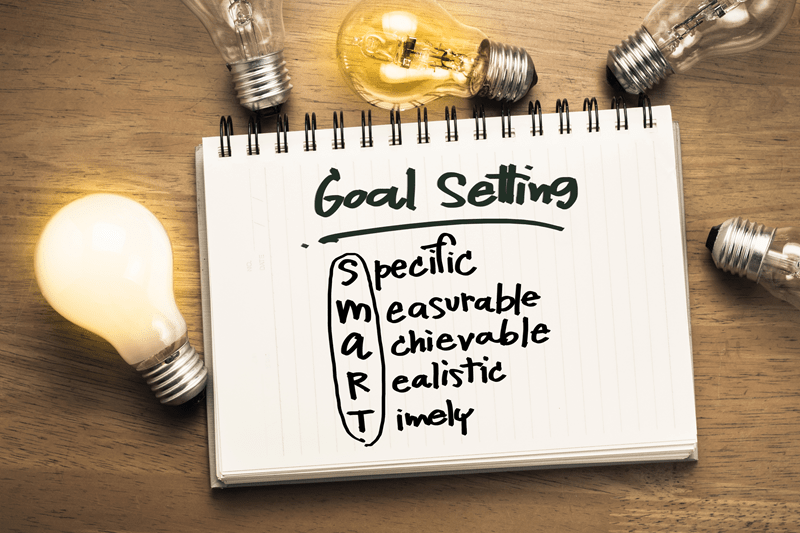
Studying to take exams may be very stressful, particularly when you have several subjects, timelines, and distractions at hand. Most students work extremely hard, yet they fail to remain focused or perform to their expectations. It is not only the intelligence that can make a difference between average and outstanding performance, but also practical goal setting. By establishing the correct goals, you are able to focus your energy, schedule your time, and also stay motivated even when your workload comes at its most demanding times. This blog will discuss some of the practical goal-setting techniques that can enable you to enhance your focus, productivity, and improve your grades on exams.
Goal-setting is so crucial in exam preparation that one should know the reason behind setting these goals before getting into the study plans and strategies. Having a purpose and direction for your studying is vital by having clear and realistic goals. It assists you in gauging your progress, and procrastination is kept away.
Having set goals, you cease studying unquestioningly; you study purposefully. Goal setting helps you stick to your course, whether it is that you want to master a specific subject, run faster in exams, or get the highest grade.
Goals act like a compass. It is they who direct your studying hours and make you focus on what is really important. Lack of them will make you easily lose focus on social media, texts, or even out of the blue. Writing down goals keeps you focused on the purpose of studying, as you always remember your goals.
When the objectives you have are specific, like in this case, to finish two chapters of Biology today, your brain knows what to do. This clarity enhances concentration in work and prevents burnout.
Goal setting is not all about the outcome, but it is about motivation. By having a clear goal, you will have a vision of the success that will appear. This is the vision that drives you to continue going even where studying is difficult. Consider how good it will be to leave an exam when you feel you did your best- that is what can be the motivation.

Not all goals are created equal. Some are too vague (“I’ll study more”), while others are unrealistic (“I’ll finish an entire book tonight”). The key is to create goals that are SMART—Specific, Measurable, Achievable, Relevant, and Time-bound.
One of the best goal-setting strategies is to break larger goals into smaller, doable tasks. Instead of saying, “I want to ace my exams,” try “I’ll review one subject each week” or “I’ll complete three practice papers by Friday.”
Smaller goals are less intimidating and easier to track. Every time you complete a mini-goal, you feel a sense of accomplishment that pushes you to move forward.
Daily goals keep you disciplined, while weekly goals help you see your progress. For instance, a daily goal could be “study for two hours without distractions,” and a weekly goal could be “cover all chapters in History.”
This structure keeps your routine balanced. When your short-term and long-term goals work together, exam preparation becomes smoother and less stressful.
Now that you know how to set goals, the next step is building habits that support focused work. It’s not about how many hours you study—it’s about how deeply you can concentrate during those hours. Consistent habits make it easier to retain information more effectively.
If you’ve ever studied for hours but retained very little, you’ve probably been multitasking. Actual productivity comes from deep work—a concept that means focusing entirely on one task without distractions.
To practice how to do deep work, start by turning off notifications, putting your phone away, and dedicating a quiet space for studying. Set a timer for 45–60 minutes and give your full attention to one subject. Afterward, take a short break before starting another session.
The goal is not to study longer, but to study smarter—with full mental presence.
Your surroundings affect your focus. Choose a space that’s clean, well-lit, and free from noise. Keep your books and notes organized so you don’t waste time searching for materials.
Some students prefer soft music or ambient sounds, while others need silence. Experiment and find what works best for you. When your environment supports your goals, focused work feels more natural.
Setting goals is one thing, but staying consistent is where most students struggle. Consistency builds habits, and habits lead to results. Even on tough days, showing up for your study session keeps your momentum going.
Write a journal or checklist of your successes in your studies. Record what you have learned, the time spent on it, and what you need to work on more. This visual development creates an inspiring factor. You are also more confident and less worried about the examinations when you see that your progress is increasing.
Rewards are effective stimulators. Reward yourself after a study period or after achieving a weekly milestone, watch a movie, or have your favorite snack. These are minor rewards that make your brain think of studying positively. In the course of time, the learning process becomes less of a burden and more of a gratifying routine to lesser achievements in exams.
On top of strategies and timetables, the attitude in your mind is a key to being successful in exams. A positive attitude not only helps in improving your confidence, but it also makes you work better under pressure.
Have confidence in what you have done. Self-doubt can burn out your energy and concentration. You should not focus on failure, but remember how much you have put into it. Resilience is a result of confidence and is essential when taking exams. You will not attain perfection, but you will have made progress. Growth is knowing how to remain calm and have faith in your process.
Visualization is a tool that is easy to use but is very effective. Before you start studying, shut your eyes and visualize yourself writing your exams with a lot of confidence. Imagine yourself responding to questions with ease. This practice of the mind then prepares the mind to perform in real life. It makes you calm and concentrated on the test.
Goal-setting is one ability at the core of every successful student. It converts ambiguous dreams into tangible plans and reminds you of your plans as long as you prepare to take your exams. The most effective solution to studying is to set achievable goals, do focused work, and adopt the way of doing deep work, which will help you succeed much better in exams. Keep in mind that it is not how much you work but the purpose of your work.
This content was created by AI